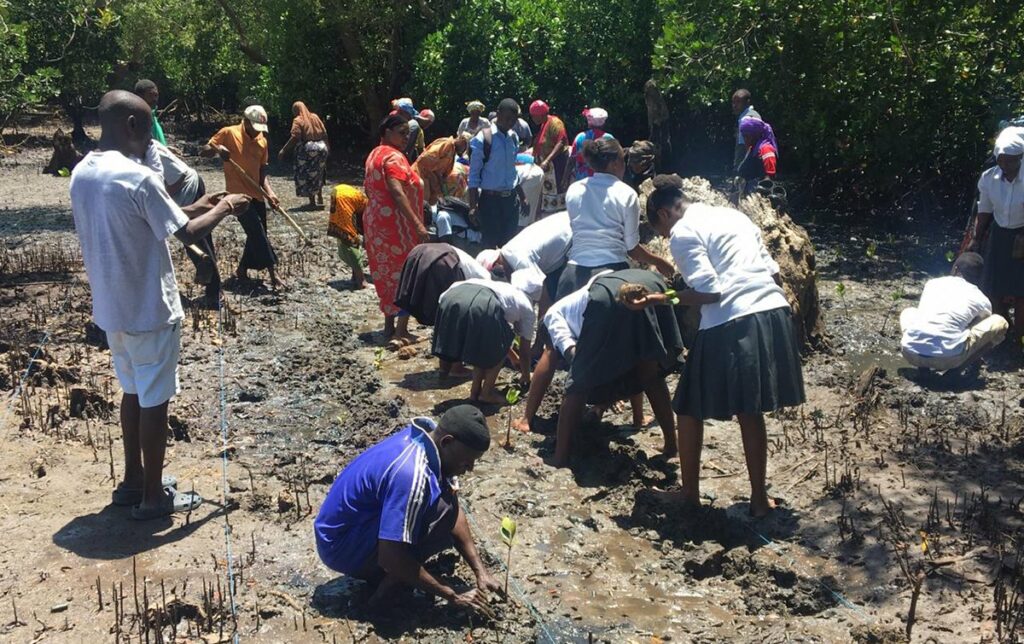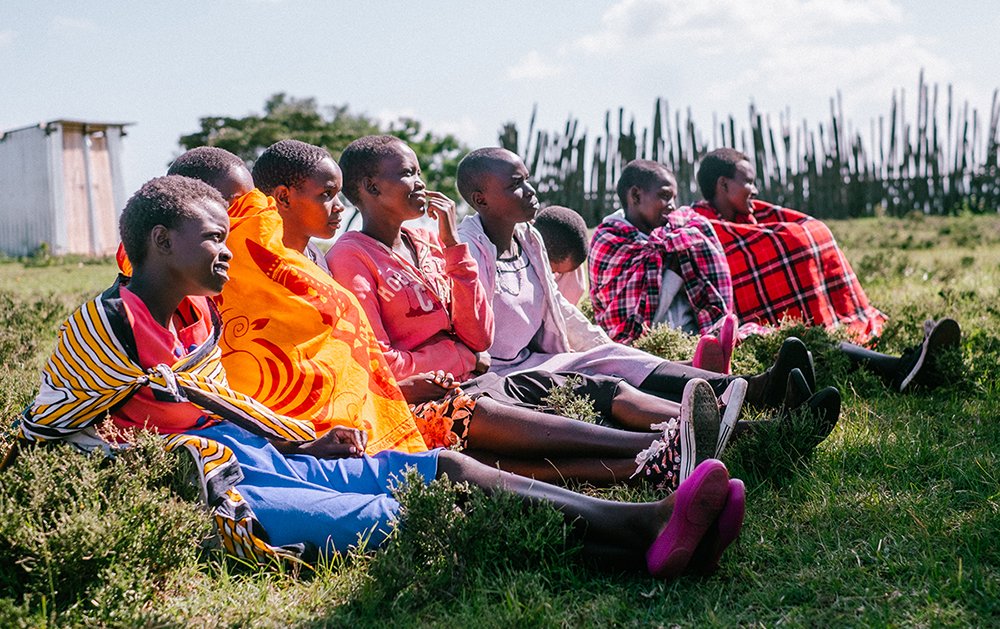Environment and Climate Change Resilience
Climate change and extreme weather events are having a huge impact on Kenyans. Flooding and long periods of drought are now regular events, and weather patterns are increasingly unpredictable. It is the most vulnerable communities who are feeling the worst effects of these events, and they need to make significant changes in order to build their resilience.

S.A.F.E. understands that the change required of people to build their resilience to climate change events is a deeply cultural one. For example, by promoting girls’ education and diversification of income, it means changing some of the social, cultural and economic practices which have been the norm for generations, causing some to fear a loss of identity and of key income sources. Therefore, any resilience strategies and adaptations have to be created and led by the community themselves in order to ensure that they are effective and sustainable. S.A.F.E.’s project empowers communities to recognise their strengths and use them to build their reliance.
SAFE Pwani’s environment programme was designed in partnership with Professor Katrina Brown, a social scientist from the University of Exeter, who was researching the resilience of communities in the South Coast of Kenya. The team use the powerful strategic tool of Forum Theatre (Theatre of the Oppressed) to create an interactive performance, Gangavazi, which presents the environmental and social challenges faced by the community to the audience. At the end of the, play the audience is invited to rerun scenes and stop the performance at any point, taking over a character on stage, and attempting to change the course of the action to resolve the situation. The play is updated every tour to respond to the ever-changing context and challenges within the community.

The solutions and ideas which are created by the audience are then explored deeper with S.A.F.E. and specialist partners during workshops with the community environmental champions identified through the project.
These champions, supported by S.A.F.E., then lead action days. In the past these have involved community clean up days involving hundreds of participants, girls empowerment sessions (one of the major themes of the play) and mass tree planting activities.
S.A.F.E.’s project has kick-started an environmental revolution in villages on the south coast of Kenya. It inspired the creation of local environmental groups who do regular village clean ups, have started mangrove regeneration projects and have created bi-laws to help the community better manage their resources.
SAFE Maa are piloting a new environment project in the Loita Hills, home to the Loita Naimina Enkiyio Forest (The Forest of the Lost Child). This forest is the lifeblood of the community and is quickly disappearing as land is cleared for farming, logging and building homes, and forest regeneration is crippled by ever-increasing livestock herd sizes. As well as an important water catchment area, the forest is also an integral part of the cultural life of the community. To protect this important area of wilderness and maintain the cherished Maasai Culture, S.A.F.E. are working with the leadership to promote a cultural reserve, that will allow the community to access the forest for all their essential cultural activities while banning all farming, settlement, logging, and grazing. While this is primarily aimed at protecting the culture, it has the excellent side-effect of protecting this unique wilderness and vital wildlife corridor.